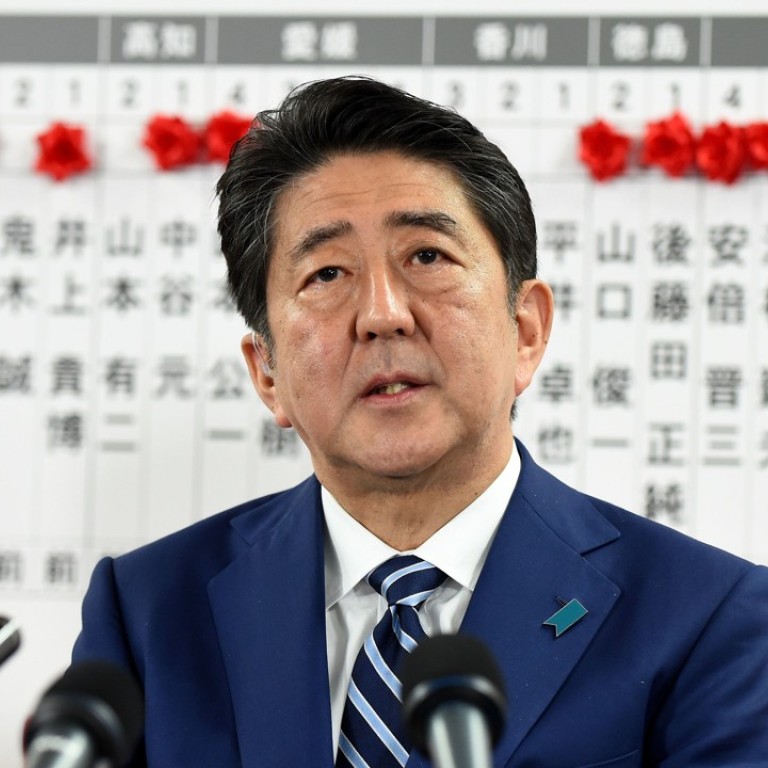
Shinzo Abe is walking a dangerous path
After a sweeping election victory, the Japanese prime minister wants to push ahead with revising his country’s pacifist constitution, a move that can only destabilise the region
Japanese Prime Minister Shinzo Abe claims his ruling coalition’s sweeping election victory was a vote of confidence in his policies. He believes he now has a stronger mandate to tackle the threat posed by North Korea, the economic challenges of a fast-ageing population and his long cherished goal of rewriting the pacifist constitution. But the results of the poll were less about approval of his governance than the lack of a credible opposition offering an alternative to his nationalistic rule. Democracy is not about being given a free hand; it is about healthy discussion and debate of the issues so that a good strategy can be formulated.
Abe had none of that in mind in calling the snap election for the lower house of parliament a year early. With opposition parties in disarray and North Korea having sparked fear with two missile tests over Japan, his mind was on opportunity. The decision also killed off discussion by lawmakers of two corruption scandals that he had denied involvement in. But there was no need for the election as his Liberal Democratic Party and coalition partner, Komeito, already had a two-thirds parliamentary majority, which has been retained after Sunday’s vote. Yet the prime minister is acting as if the political landscape has been shaken, saying he will take tough action against Pyongyang and worryingly, signalling that the time has come to change the constitution. There is nothing different Japan can do about North Korea; it still relies on its ally, the United States, to resolve the nuclear and missile crisis. Nor is there a need to alter a constitution that meets the desire of Japanese to live in peace in a prosperous country and region.
But Abe sees the constitution, imposed by the US after Japan’s defeat in the second world war, as a humiliation. He wants the so-called peace clause of Article 9 changed to enable a fully fledged military rather than be limited to a self-defence force. Reform, although an election platform, was not mentioned during campaigning. After victory, though, it has become a prominent issue, the aim being to rally support among reluctant and opposing lawmakers. It will be challenging; an amendment requires a two-thirds majority in both houses of parliament and support in a referendum, a tough ask with opinion polls showing about 60 per cent of Japanese rejecting the idea.
Chinese and Koreans, who suffered most at the hands of imperial Japan, are understandably incensed by the suggestion. Abe’s pushing ahead is likely to spark an arms race in the region. Rather than worsening foreign relations and deepening divisions in society, he should instead focus on the economic and social well-being of Japanese and enabling open and inclusive discussion and debate.

